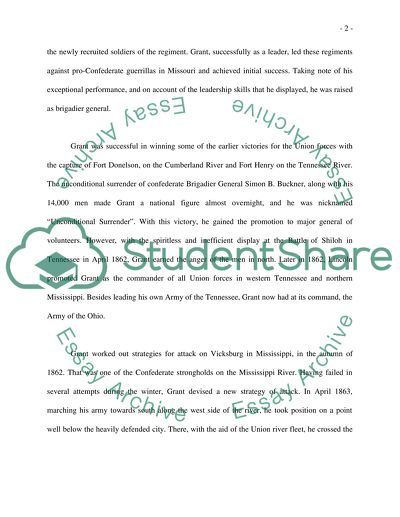Cite this document
(“Ulysses Simpson Grant Essay Example | Topics and Well Written Essays - 2250 words”, n.d.)
Retrieved from https://studentshare.org/miscellaneous/1528626-ulysses-simpson-grant
Retrieved from https://studentshare.org/miscellaneous/1528626-ulysses-simpson-grant
(Ulysses Simpson Grant Essay Example | Topics and Well Written Essays - 2250 Words)
https://studentshare.org/miscellaneous/1528626-ulysses-simpson-grant.
https://studentshare.org/miscellaneous/1528626-ulysses-simpson-grant.
“Ulysses Simpson Grant Essay Example | Topics and Well Written Essays - 2250 Words”, n.d. https://studentshare.org/miscellaneous/1528626-ulysses-simpson-grant.


